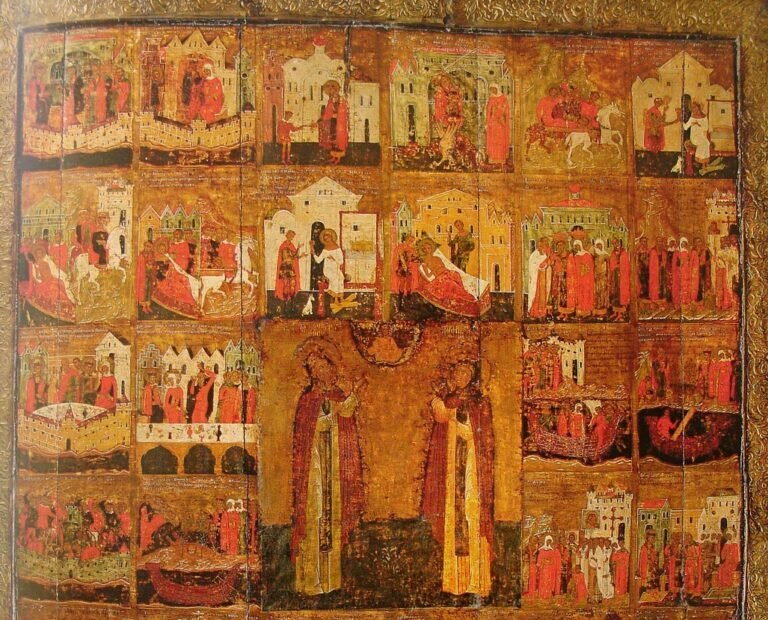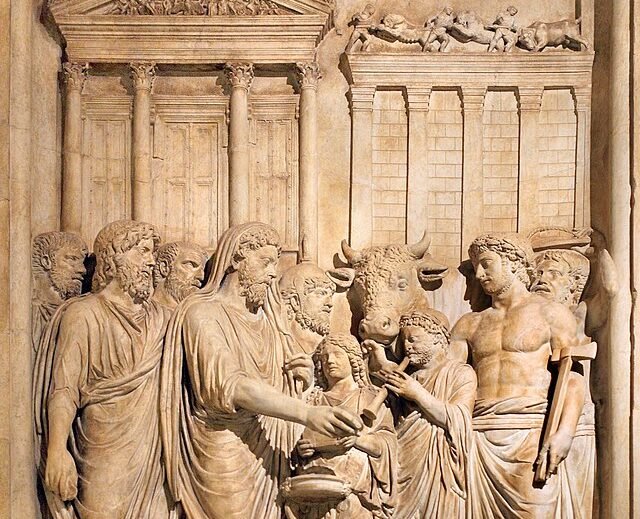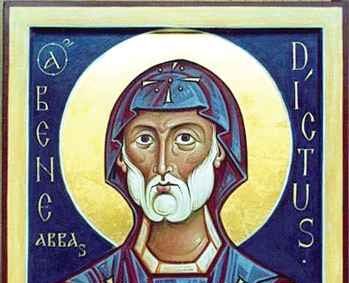Chronos, Kairos and Aion are the three deities of time, events and epic destinies. Here is the multi-religious and multicultural calendar!
Find us on our website Mythology and Legend, on Facebook and on instagram !

The schedule in brief from D-2 to D+5
- 30 June 2024, Daily: Alarde de San Marcial
- 1 July 2024, Daily: Blood of Christ
- July 2, 2024, : Palio di Siena
- 3 July 2024, Daily: Days of the Dog
- July 4, 2024, : Elizabeth of Portugal
- July 5, 2024, : Tynwald Festival
- July 5, 2024, : Poplifugia
- July 6, 2024, : Ludi Apollinares
- 6 July 2024, Every day: Mindaugas
- July 7, 2024, : Caprotinia
- 7 July 2024, Daily: San Fermín Festivities
The complete interactive calendar
Semaine du 2024-07-08
| Mymonday | Killtuesday | Wednesdaywednesday | ThuThursday | Frifriday | Satsaturday | Sunsunday |
|---|---|---|---|---|---|---|
Jul 8, '24July 8, 2024●●(2 events) Saint Peter and Saint FevroniaJuly 8, 2024  Today, the Northern Orthodox (kyiv Rus) celebrate Saint Peter and Fevronia. It celebrates the patron saints of marriage and the family, as well as the symbols of love and fidelity. On this day it was common to go to church, where people asked for family love and grace. #mythology #myth #legend #calendar #8July #fevronia Vitulatio –  On this day, the Romans celebrated Vitulatio. Macrobius says that it marked a Roman retreat of the Etruscans to Fidenae during the Gallic invasion, and that the Vitulatio commemorated their return victory. The festival was quickly eclipsed by the Ludi Apollinares from July 6 to 13. #mythology #myth #legend #calendar #itulation #Rome #8July |
Jul 9, '24July 9, 2024●●(2 events) Aude the Very Wise –  Today, the Asatrus celebrate Aude the Very Wise. An “unlucky” Viking queen in the 9th century, she founded a Scandinavian establishment in Iceland. It is cited in numerous Viking and Icelandic sagas such as the Landnámabók of Sturla Þórðarson; The Laxdæla saga, which calls it Unn, the Njáls saga, the Eyrbyggja saga, the Eiríks rauða saga and the Grettis saga. #mythology #myth #legend #calendar #9July #Unn #Aude #Scandinavia #Iceland Our Lady of PeaceJuly 9, 2024  Today, Catholics celebrate Our Lady of Peace. The origins of the holiday come from France in the 15th century CE. A certain Jean de Joyeuse offered the statue as a wedding gift to his young wife, Françoise e Voisins. The statue was known as the Virgin of Joyeuse and became a family heirloom and then of the Franciscan Church. #mythology #myth #legend #calendar #9July #notredamedaix | Jul 10, '24July 10, 2024 |
Jul 11, '24July 11, 2024●(1 event) Benedict of NursiaJuly 11, 2024  Today, Christians commemorate Benedict of Nursia, Saint Benedict. He is considered by Catholics and Orthodox as the patriarch of Western monks, thanks to his rule which had a major impact on Western monasticism and even medieval European civilization. #mythology #myth #legend #calendar #July 11 #saintbenoit |
Jul 12, '24July 12, 2024●●(2 events) Olivier Plunket –  Today, Irish Catholics celebrate Saint Olivier Plunket. He was born in Ireland on November 1, 1629. While studying theology in Rome, he was unable to return to his country because of Cromwell's persecution. Back in Armagh, he was accused of collaborating with the enemy of the English crown. He will be tortured, hanged, gutted and dismembered by English justice. King Charles II returned his remains to his loved ones for a decent burial. #mythology #myth #legend #calendar #July 12 #OlivierPlunket #Ireland Twelfth –  Today, the Northern Irish celebrate Twelfth. It celebrates the Glorious Revolution (1688) and the victory of Protestant King William of Orange over Catholic King James II at the Battle of the Boyne (1690), which ensured Protestant ascendancy in Ireland. #mythology #myth #legend #calendar #July 12 #Ireland #Twelfth | Jul 13, '24July 13, 2024 | Jul 14, '24July 14, 2024 |
Multicultural and multi-religious almanac
An almanac is a calendar showing the main dates of the calendar, the religious holidays, bearing ephemerides such as the phases of the moon or the duration of the days (lunar and solar calendars).
A calendar is a system for marking dates according to time. Such a system was invented by men to divide and organize time over long periods. The observation of the periodic phenomena of the environment in which they lived — such as the daily movement of the shadow, the return of the seasons or the lunar cycle — served as the first references for organizing the agricultural, social and religious life of societies.
The calendar used today in most of the world is the Gregorian calendar. In everyday language, an ephemeris designates what happens daily; the ephemeris of the day is the list of the significant events of this day.